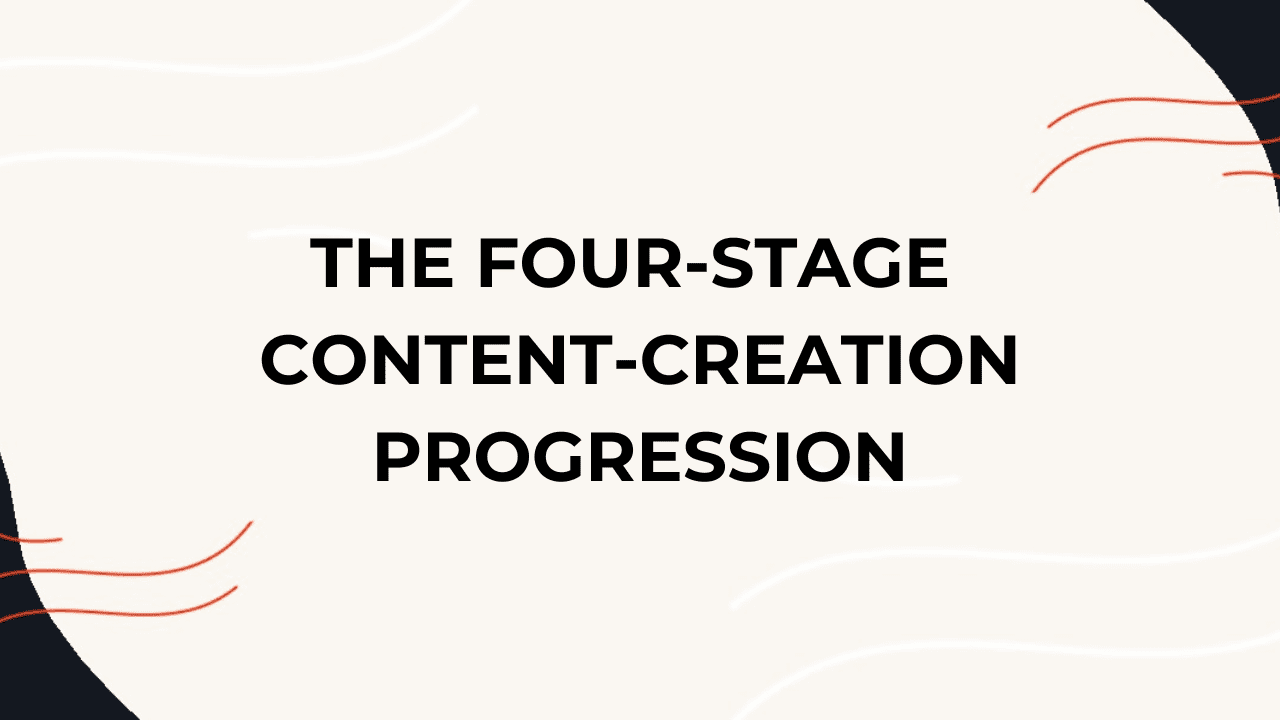When you start, as with anything, you won’t be good at it. Getting frustrated that nobody is listening in the world when you’ve just started doing something that you could never reasonably expect to be good at is a mistake.
There’s value in creating content when you’re new. Just do it for you, first. Then for your customers, your industry, and finally (maybe) the world.
1. For yourself
2. For your customers
3. For your industry
4. For the world
--
Matt Mullenweg, the founder of Automattic (WordPress) once said, “when you can write well, you can think well. The best way to learn is to teach.”
Teaching somebody else an idea is the best way to form a greater understanding of it.
Creating content as a way to learn better is effective. Whether anybody else reads it is irrelevant. Also, thanks Mom for the comment on my first blog. Yours was my only one for two years.
--
There will come a day where you know enough to help your customers. It’s unlikely anything you have to say is revolutionary.
Odds are you’ve read the same books and watched the same videos as others in your field. Still, your customers will enjoy getting the information from you.
Start a newsletter, write a blog, record a podcast, make videos, or publish on social media. It doesn’t matter which you choose so long as the goal is to serve your existing customers. Most business owners should stop at this stage.
--
Content’s best job is two-fold: 1) to help you learn, and 2) to help you better serve your existing customers.
If its focus is on people you already work with, it will improve retention, referrals, and customer success.
By focusing inwards with your content you’ll get many of the benefits and avoid the comparison, frustration, and wasted time prevalent in the content creation world.
Additionally, making helpful stuff for the people you serve is more genuine than trying to impress the world. That shows, and while it shouldn’t be the goal, there’s a chance the work will be so good that it will get discovered which can lead to opportunities beyond your immediate network.
--
A story from my career:
In 2010 I wrote a blog for my clients. Whenever they’d ask me a question, I’d write a note on the back of my clipboard so I could write an article.
The best phrase to describe my approach would have been blissful ignorance. It wasn’t that I didn’t want to get famous on the internet, I didn’t know that it was possible.
Admittedly, the world was different then. Still, the articles weren’t trying to impress anybody. They were trying to help by answering real questions by real clients.
--
Something about how genuine the approach was resonated.
Some of the articles went viral and got the attention of influential people. Before long, Livestrong named me one of the ’45 best trainers you’ve never heard of’, Men’s Health asked me to contribute to a book, and I got offered a writing spot on Arnold Schwarzenegger’s blog.
Looking back, there’s two things I learned from this experience.
The first was that none of that virality or recognition happened because I was trying to make it happen. It happened because of how genuinely I was trying to answer questions.
The second was that it didn’t lead to a single training client. Ever. Literally, not one. It was great for the ego but made no difference for my wallet.
--
At a certain point my colleagues began asking me what I was doing. This was when I transitioned into stage 3 and begun to create content for my industry.
Building an audience of colleagues as you continue to serve your customers can lead to additional business opportunities. It could be anything from products, to coaching services, and software.
Serving others inside your industry can be a natural growth progression. Because you were once like them, you understand the pains of your colleagues and can help alleviate those pains.
--
It’s only at the end of this journey that valuable thought leaders are born.
These people earn trust and respect from huge followings. Reaching stage 4 is rare.
It’s at this point where success speaks for itself and knowledge transcends industries.
Truly valuable followings are most often built by people who have achieved something special outside of social media.
I want to highlight the contrast difference between influencers and valuable thought leaders.
The influencer has figured out how to entertain around an idea.
The thought leader, on the other hand, has a palpable wisdom––the rarified combination of experience and insight resulting from many years of learning, doing, and building.
--
Publishing content is always valuable. Just don’t be seduced into thinking it’s going to get you customers.
There are other benefits that evolve as your career progresses.
Start doing it as a way to learn, then to serve your customers, then to educate your industry, and finally, to influence the world (in that order).
Trust online is hard to come by because most people sharing content haven’t put in the real work to earn it. They think content creation is a shortcut to success. It’s not.










